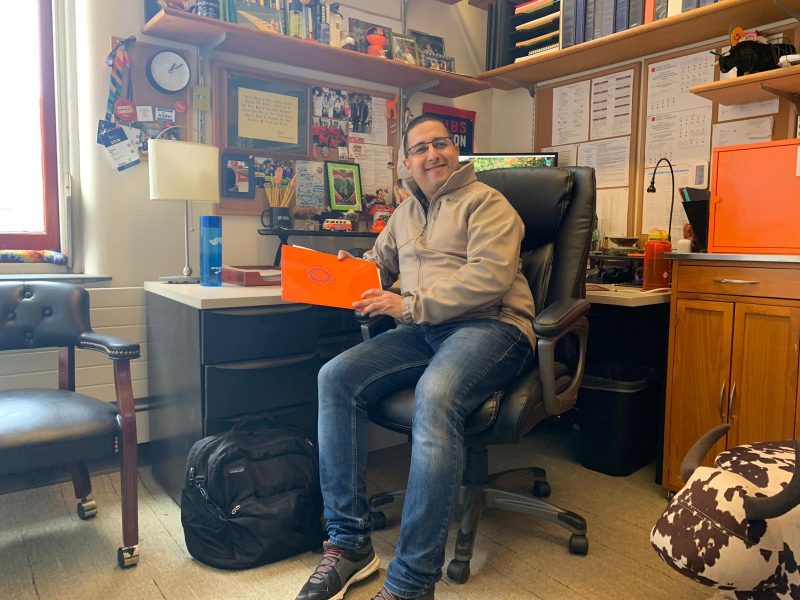Third in a 4-part series of profiles on Fulbright Distinguished Awards in Teaching recipients
A high school English as a Foreign Language teacher from Rabat, Morocco, Hicham Mahda says the Fulbright Distinguished Awards in Teaching for International Teachers program has made him an international teacher, “which is a point of great pride in my community,” he explains. Mahda speaks highly of the experience, and is quick to share ways the opportunity has positioned him for future success.
 He says, “Being a Fulbright DAI participant not only improved my academic and professional skills, but it has also been a great opportunity to contribute to the host institution.” Mahda, who describes himself as a, “teacher, reader, presenter, actor, laugher, computer nerd and generally a free spirit,” says these qualities helped him build good personal and professional contacts, and create an intercultural community at Syracuse University.
He says, “Being a Fulbright DAI participant not only improved my academic and professional skills, but it has also been a great opportunity to contribute to the host institution.” Mahda, who describes himself as a, “teacher, reader, presenter, actor, laugher, computer nerd and generally a free spirit,” says these qualities helped him build good personal and professional contacts, and create an intercultural community at Syracuse University.
His strong desire to learn and his open mindness further inspired him to introduce a number of initiatives during his time here at Syracuse. Most notably, suggesting a cultural event at the School of Education, where all 18 Fulbright DAI participants shared aspects from their cultures, including food, art, and games. The entire SOE community and the Fulbright friendship families were invited to attend, to learn more about the nine home countries of the Fulbright teachers.
Additionally, Mahda organized a visit to Faith Heritage School for Fulbright DAI participants. During this visit, the Fulbright group had the opportunity to observe different classes, engage in discussion with school administration about private Christian school education around the world, and make comparisons to public schools in the Syracuse area.
Mixing two of his passions—teaching and acting—during his placement at Nottingham High School, Mahda has enjoyed introducing non-traditional approaches to encourage collaborative learning, including mini-workshops where students improved their basic acting skills, performing scenes from their assigned classics like Romeo and Juliet. The ultimate objective has been to adapt these classic scenes to modern life. Looking at different learning approaches and spotting problems in systems to find solutions is a major part of Mahda’s inquiry project, which has been aided by his audit courses, Instructional Design and Development II, and International Education for Transformation.
During a trip to New York City intended for leisure, Mahda found himself focusing on his work when he visited the Queens Library. He says, “I had the opportunity to meet the assistant manager of the Adult Learning Center and discuss the exchange of resources. The materials I received have been really useful for my inquiry project, which includes the potential formation of a ‘Leadership and Life Skills Development camp’ for secondary school students from disadvantaged families in Morocco.”
Mahda expresses his appreciation for the many activities that have been organized to allow him and his fellow Fulbright teachers to enhance their mutual understanding and share their culture with their American counterparts. There have been many opportunities to learn, but also to contribute and share. An experience that stood out for Mahda was when the group volunteered at Syracuse’s Samaritan Center, which helps feed the city’s underserved populations. Mahda has shared his cooking expertise with fellow Fulbright teachers and others he has met in Syracuse. He notes, “I have chosen to share my culture through food because I believe it is a universal language that illustrates the Moroccan history and culture; it is the best way to illustrate our diversity while encouraging tolerance.”
